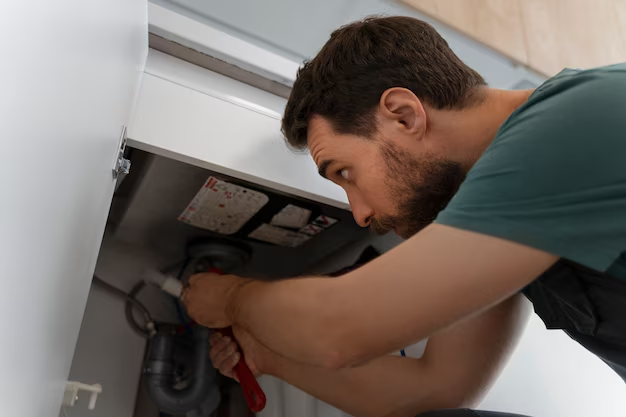Should You Turn Off the Water Supply to Your Refrigerator? Everything You Need to Know
Picture this: You're rearranging your kitchen or preparing for an extended vacation, and you come across the question, "Can I turn off the water to my refrigerator?" It's a thought that might seem trivial at first, but understanding the implications can lead to a better choice. This guide delves deep into this topic, exploring when, why, and how it might be appropriate to turn off the water supply to your refrigerator without causing any harm.
Understanding Refrigerator Water Lines
The Role of Water in Your Refrigerator
Modern refrigerators often come with water dispensers and ice makers, making water lines a crucial component. These amenities offer convenience, providing cold water and ice at the push of a button. However, the necessity of water lines goes beyond just luxury:
- Hydration Convenience: Quick access to chilled, filtered water encourages healthy hydration habits.
- Lifestyle and Entertaining: Ice makers are perfect for parties or gatherings, ensuring a steady supply of ice.
How the Refrigerator Water Line Works
The water line is a small tubing that connects to the main water supply, feeding into the refrigerator. It operates based on its specific connection point:
- Direct Connection: Directly links your refrigerator to the water source through a basic tap or valve.
- Water Filtration: Often, refrigerators incorporate filters to ensure you enjoy pure, clean water.
Is It Safe to Turn Off the Water Supply?
Potential Reasons to Turn Off the Water
Several scenarios might lead you to consider shutting off the water supply:
- Maintenance: Conducting routine cleaning or repairs might necessitate turning off the water for safety reasons.
- Extended Absence: Going on a long vacation? Shutting off the water could prevent unexpected leaks.
- Malfunctions: If the water dispenser or ice maker malfunctions, turning off the water can prevent further complications.
- Energy Efficiency: Some opt to disable the ice maker to reduce energy use and cut down on their power bill.
When It Might Be Beneficial
While not usually necessary under regular circumstances, there are benefits to turning off the water:
- Leak Prevention: Stops potential water damage or flooding from a leaky valve or connection.
- Savings on Utilities: Minimize unnecessary water usage when dispensers or ice makers aren't essential.
- Maintenance and Repairs: Simplifies plumbing tasks, allowing adjustments or repairs to be made safely.
How to Safely Turn Off the Water Supply
Step-by-Step Guide
Turning off the water supply is often straightforward, assuming you have easy access to the main valve or tub:
- Locate the Shutoff Valve: Usually found behind the refrigerator or beneath the kitchen sink.
- Turn Off the Valve: Rotate the valve clockwise to stop the water flow.
- Verify the Disconnection: Test the water dispenser or ice maker to confirm no water is flowing.
Considerations and Precautions
- Double Check for Leaks: Before and after turning the valve, ensure no leaks by periodically inspecting connections.
- Allow Air Clearance: When restarting the water line, give time for air bubbles to clear to prevent sputtering.
- Consult a Professional if Unsure: If the process seems complex or if valves are inaccessible, seek professional help.
Potential Risks and Downsides
What Could Go Wrong?
Though generally safe, several potential issues could arise when disconnecting your refrigerator from its water supply:
- Dehydrated Ice Makers: Ice makers left on might become damaged without water flow.
- Clogged Filters: Filters could dry out and possibly get clogged when not used for extended periods.
- Reduced Functionality: Appliance features dependent on water won't work, impacting convenience.
When Not to Turn Off the Water
- Avoid for Short Absences: If you plan to be away for just a few days, it might be more trouble than it’s worth.
- Regular Usage: Regular users of water and ice might find it inconvenient not to have these functions available.
Making the Decision: Tips and Takeaways
Key Considerations for Homeowners
- Assess Usage Habits: Regular users of dispensers may not benefit from turning off water frequently.
- Understand Functionality Needs: If the refrigerator plays a significant role in hydration and cooling needs, disruptions could be inconvenient.
- Plan for Maintenance: Utilize water shutdowns during cleaning or repair operations efficiently.
Summary of Pros and Cons
📌 Reasons to Turn Off the Water
- Leak prevention
- Simplified cleaning or repairs
- Savings on utility costs
📌 Risks of Turning Off the Water
- Potential appliance damage
- Inaccessible water and ice
- Clogged water filters
Alternatives to Turning Off the Water
Should turning off the water be unsuitable for your needs, consider these alternatives:
- Use a Water Valve Add-On: Install an easier-to-reach secondary valve to control water better.
- Regular Maintenance: Ensure ice makers and water dispensers are in top condition, minimizing leak risks.
- Smart Appliances: Invest in modern refrigerators with energy-efficient modes or notifications for leak detection.
Final Insights
Engaging with your refrigerator's functionalities might prompt you to consider turning off the water supply. While this decision is largely personal and situation-dependent, understanding its practicalities ensures peace of mind. Whether you're aiming to stop leaks during extended trips or reduce energy consumption, taking measured actions allow you to harness the full potential of modern appliances without compromising safety or functionality. Evaluate your lifestyle, maintenance routines, and readiness for handling minor plumbing to make an informed choice that complements your household needs.

